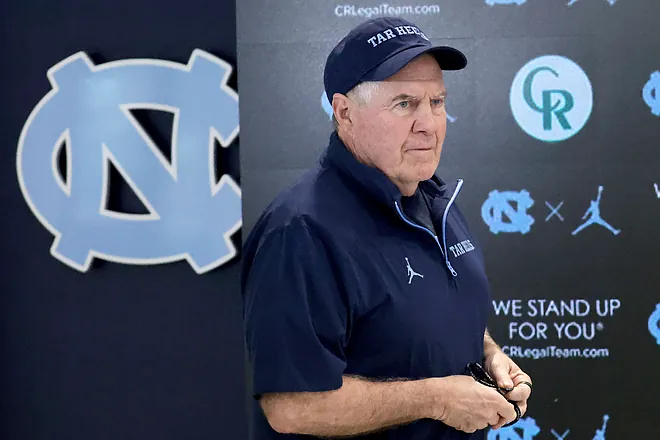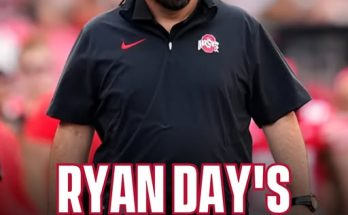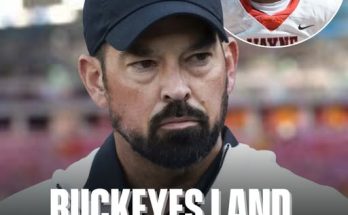As the 2025 college football season inches closer, one of the most talked-about programs in the ACC isn’t Clemson or Florida State. It’s North Carolina. And not necessarily for on-field reasons.
Following the sudden and surprising hiring of Bill Belichick as a special advisor to the Tar Heels football program—a move that stunned both college and NFL circles—the attention surrounding UNC football has shifted dramatically. Once a solid ACC team under Mack Brown with aspirations to make the leap into playoff contention, the Tar Heels are now the center of media frenzy. However, that spotlight is as much a distraction as it is a badge of relevance.
The reality for North Carolina football? The Belichick era has begun, but uncertainty dominates the scene—because off-field attention is clouding on-field preparation, team culture, and long-term identity.
Belichick’s Arrival: Game-Changer or Gimmick?
Belichick’s addition to the UNC football infrastructure sent shockwaves throughout the sport. After parting ways with the New England Patriots, where he served as head coach for 24 seasons and won six Super Bowls, many believed Belichick would either retire or return to the NFL. Instead, he opted for a unique role in Chapel Hill—a program that, while competitive, is far from the bluebloods of the college football world.
UNC Athletic Director Bubba Cunningham called the move “a generational opportunity to learn from the greatest defensive mind football has ever known.” But the lack of clarity surrounding Belichick’s responsibilities has left many inside and outside the program wondering: what exactly will he do?
Sources close to the program suggest Belichick will not be involved in day-to-day game-planning or recruiting, but will instead focus on long-term program building, culture, and football operations strategy. Still, the ambiguity has left the coaching staff in a tricky position.
“Any time you bring in someone of Belichick’s stature, you’re dealing with a gravitational shift,” one anonymous assistant told The Athletic. “It’s a power dynamic we’re still adjusting to.”
Off-Field Distractions Loom Large
What was once a quiet offseason focused on roster development has become a circus. National media outlets have stationed reporters in Chapel Hill, and every team meeting, workout, and scrimmage is dissected. UNC players are fielding more questions about Belichick than they are about their own progress.
This increase in media attention is having consequences. Multiple team sources have described the current environment as “tense,” with staffers working overtime to manage expectations and prevent locker room divisions.
One source noted, “This was already going to be a transitional year after losing Drake Maye. Now, everything feels performative. Players aren’t just competing—they’re auditioning for a legacy narrative they didn’t sign up for.”
Quarterback Uncertainty and Leadership Vacuum
On the field, the biggest issue facing UNC is the quarterback position. With Drake Maye now in the NFL, the Tar Heels lack a proven leader under center. Redshirt sophomore Connor Harrell has shown flashes, and transfer Max Johnson from Texas A&M brings SEC experience, but neither has seized the role definitively.
Compounding the problem is the lack of clarity on offensive identity. Longtime offensive coordinator Chip Lindsey must now navigate Belichick’s philosophical shadow, even if the legendary coach isn’t directly calling plays.
Several players have privately expressed concern that “we don’t know who’s steering the ship.” Without a clear leader at quarterback—and with staffers subtly adjusting to Belichick’s presence—UNC risks a leadership vacuum at the most important time of the year: summer workouts and preseason camp.
Recruiting Ripple Effects
Recruiting has also been impacted by the Belichick saga. While some high school prospects are intrigued by the idea of being around an NFL legend, others and their families are wary of the distraction. Belichick is not known for his college recruiting prowess, and his stern demeanor doesn’t always translate to relationship-building with teenagers.
UNC has seen several top targets slow their recruitment process. In one instance, a four-star defensive back from Georgia postponed his official visit, citing “too much going on” in Chapel Hill.
“We thought it would be a positive, but it’s actually added uncertainty,” a high-ranking staffer said. “Kids are asking us questions we can’t answer, like ‘Will Belichick still be there in 2026?’ or ‘Is he going to coach?’”
If this continues, UNC risks losing traction in the increasingly competitive ACC recruiting landscape, especially with Florida State, Miami, and Clemson all gaining momentum.
Culture Clashes and Philosophical Differences
Perhaps the most under-discussed issue in Chapel Hill is the cultural clash between Belichick’s NFL-first, results-driven mindset and the college game’s more relational, player-development approach.
Belichick’s stint with the Patriots was defined by the “Patriot Way”—a culture of discipline, privacy, and hard-nosed football. That culture doesn’t always translate to college environments where NIL, transfer portals, and player branding are major priorities.
Mack Brown’s UNC teams were known for their player-first atmosphere, open communication, and emotional connectivity. Belichick’s arrival introduces a contrasting ethos that may be causing subtle division among players and staff.
“This isn’t the NFL. You can’t treat 19-year-olds like 29-year-olds,” one longtime assistant noted. “There’s a learning curve, and right now we’re in the steep part of it.”
Schedule Won’t Wait
Unfortunately for UNC, the 2025 schedule isn’t offering any grace periods. The Tar Heels open against a surging South Carolina team led by a revitalized offense under new head coach Marcus Satterfield. From there, matchups against Minnesota, Florida State, NC State, and Miami loom large.
In a season where the ACC will be determined by inches, distractions could be fatal. Even if Belichick’s influence becomes a net positive by November, the early-season turbulence might already have set the team back.
Key Games on the 2025 UNC Schedule:
- Week 1 vs South Carolina – Nationally televised opener with massive pressure.
- Week 3 at Minnesota – Big Ten road test.
- Week 6 at Florida State – Potential season-defining clash.
- Week 10 vs NC State – In-state rivalry with recruiting implications.
Player Voices and Locker Room Pulse
Despite the turmoil, some players are optimistic.
Linebacker Power Echols, a team captain, told reporters, “We’re not here for the headlines. We’re here to win football games. Coach Belichick? He’s just another mind we can learn from.”
Still, not everyone shares that sentiment. Some upperclassmen have expressed frustration with the changing routines and increased media attention. Practices have reportedly been modified to accommodate press access and security, something players weren’t used to under the old regime.
The locker room remains intact—for now—but sources suggest a rocky start could lead to internal fractures if egos and expectations aren’t managed.
The Long-Term Vision
So what does UNC hope to achieve with the Belichick experiment?
Privately, administrators see this as a two- to three-year project aimed at institutional growth. Belichick’s presence may help modernize football operations, upgrade scouting and analytics, and create a stronger NFL pipeline. There’s also speculation that he may help identify and groom a successor to Mack Brown, who, at 73, is in the twilight of his coaching career.
But these are long-term goals. In the short term, Belichick’s involvement has raised more questions than it has answered. And in the high-stakes world of college football, uncertainty is a dangerous currency.



